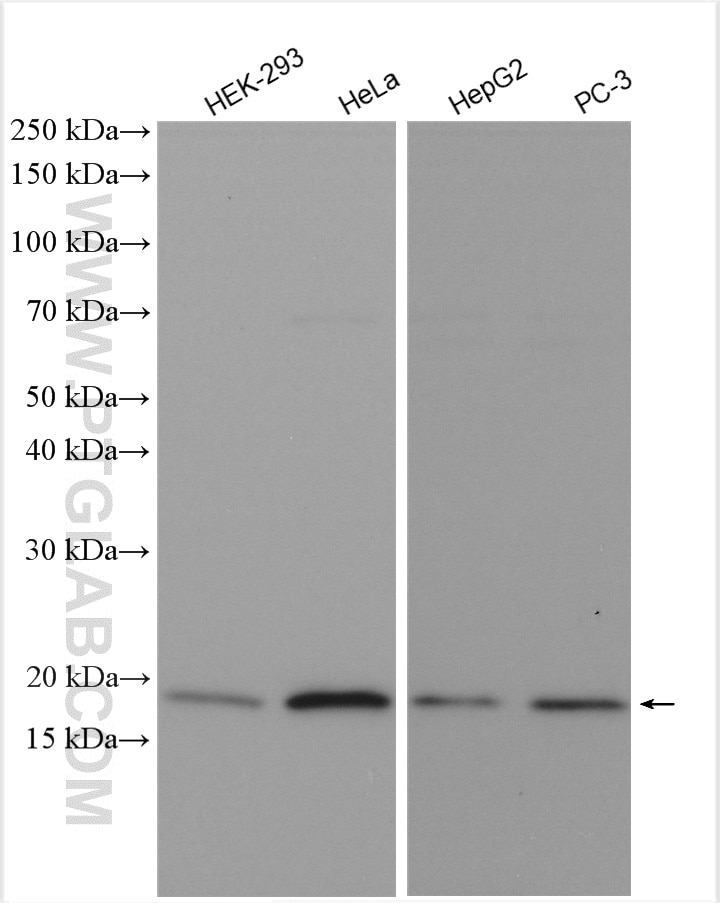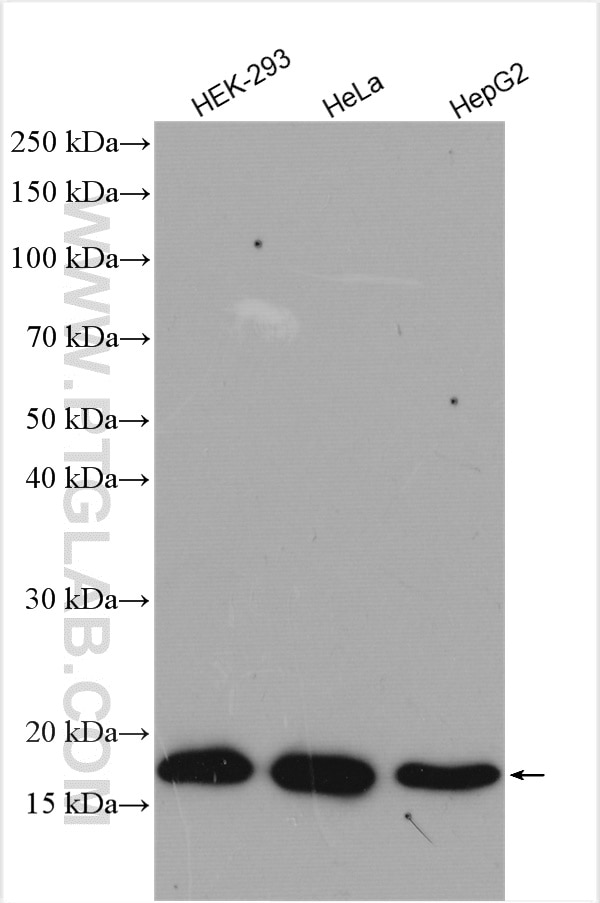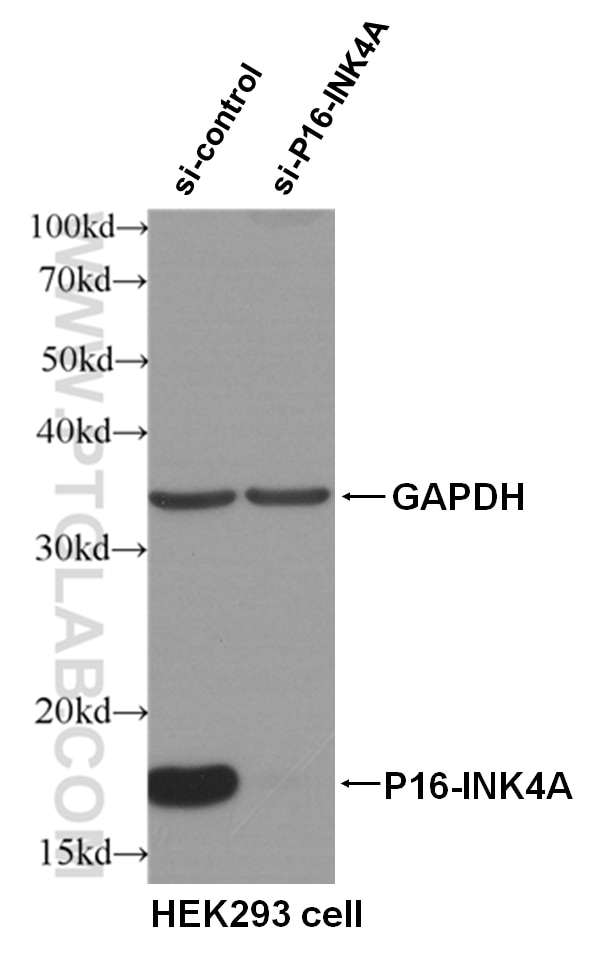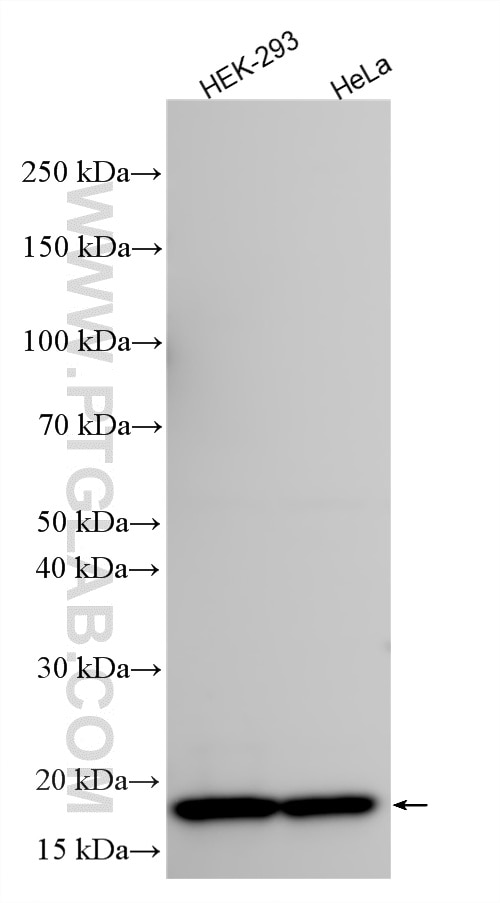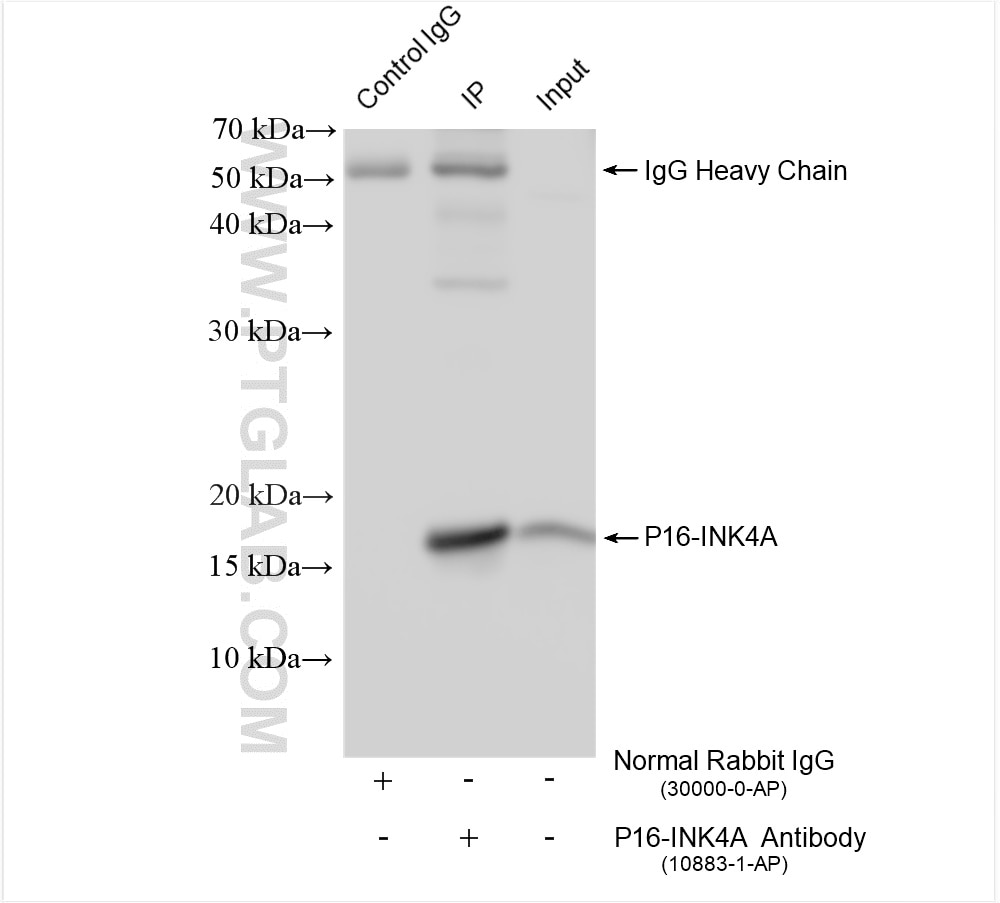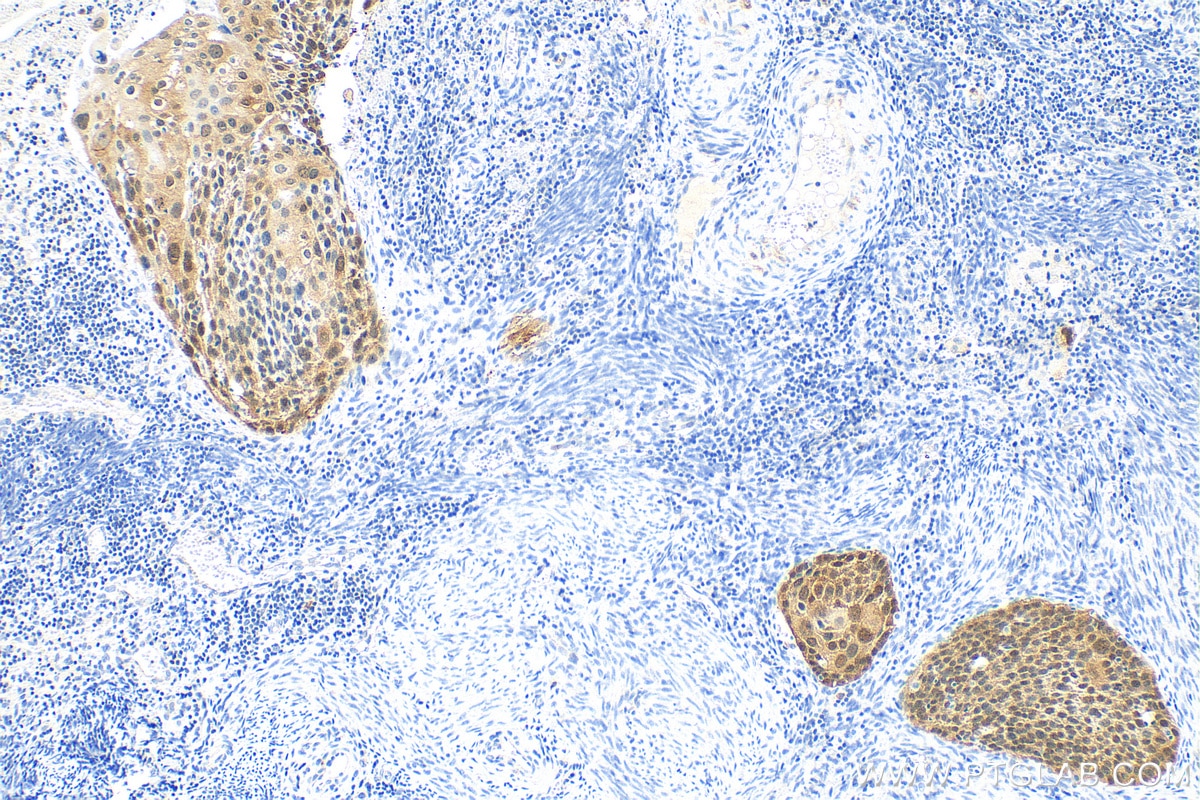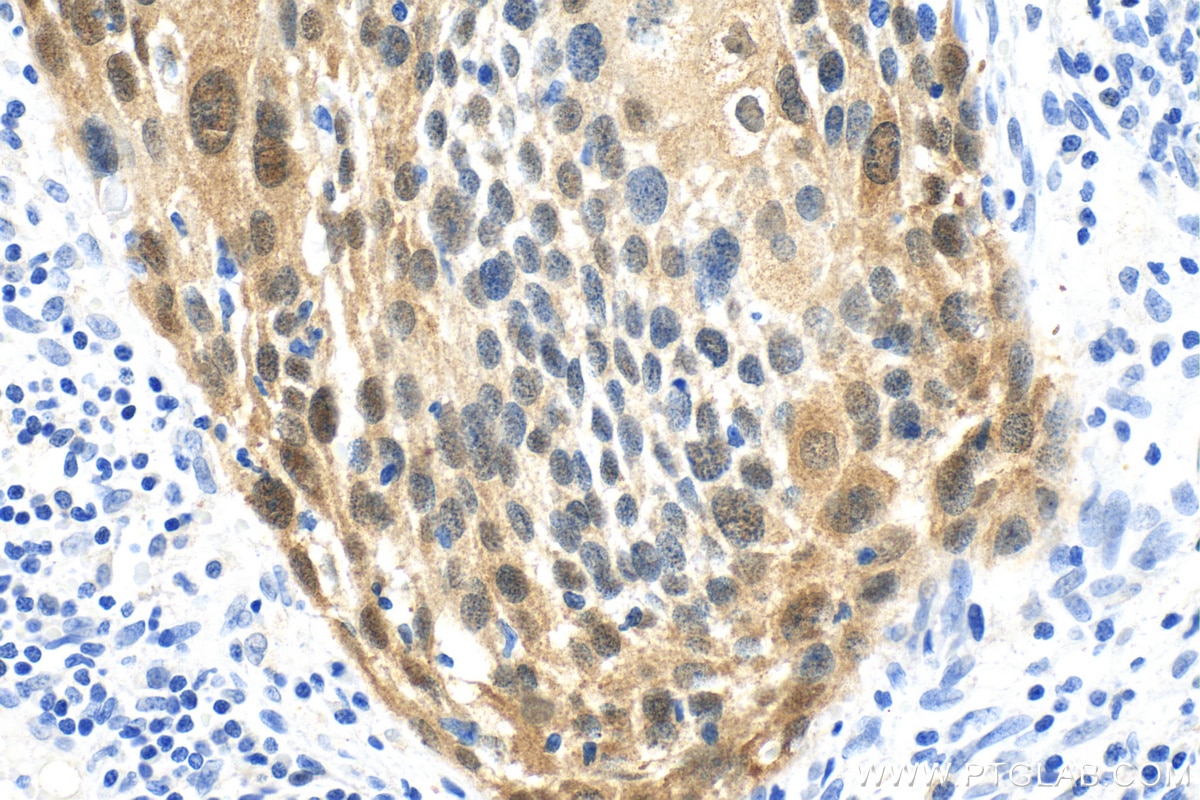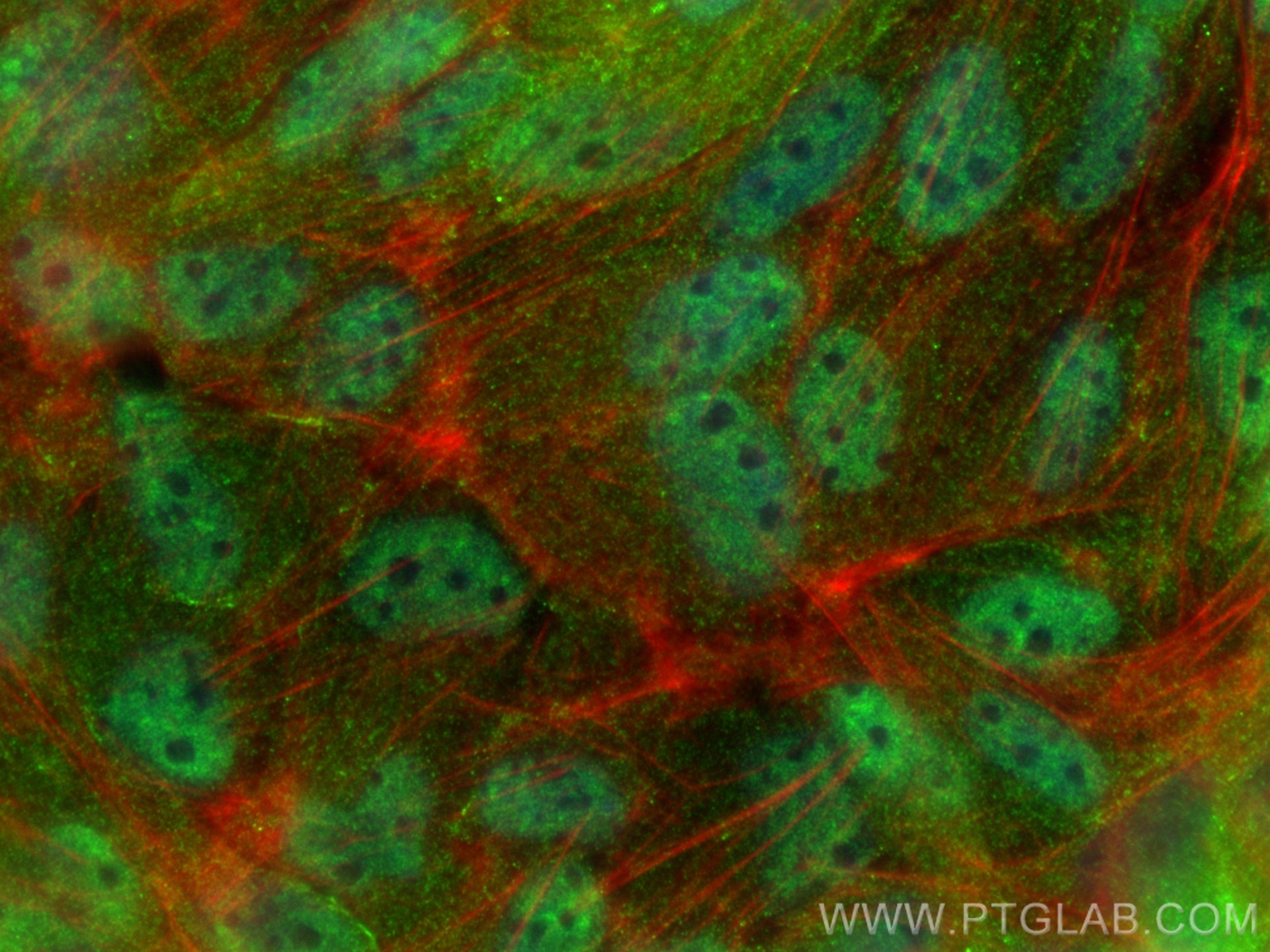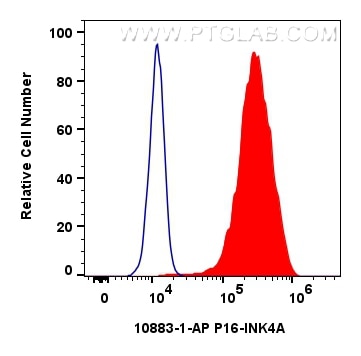Validation Data Gallery
Tested Applications
| Positive WB detected in | HEK-293 cells, HEK293 cells, HeLa cells, HepG2 cells, PC-3 cells |
| Positive IP detected in | HEK-293 cells |
| Positive IHC detected in | human cervical cancer tissue Note: suggested antigen retrieval with TE buffer pH 9.0; (*) Alternatively, antigen retrieval may be performed with citrate buffer pH 6.0 |
| Positive IF/ICC detected in | MDCK cells |
| Positive FC (Intra) detected in | HeLa cells |
Recommended dilution
| Application | Dilution |
|---|---|
| Western Blot (WB) | WB : 1:1000-1:6000 |
| Immunoprecipitation (IP) | IP : 0.5-4.0 ug for 1.0-3.0 mg of total protein lysate |
| Immunohistochemistry (IHC) | IHC : 1:1000-1:4000 |
| Immunofluorescence (IF)/ICC | IF/ICC : 1:200-1:800 |
| Flow Cytometry (FC) (INTRA) | FC (INTRA) : 0.40 ug per 10^6 cells in a 100 µl suspension |
| It is recommended that this reagent should be titrated in each testing system to obtain optimal results. | |
| Sample-dependent, Check data in validation data gallery. | |
Published Applications
| KD/KO | See 1 publications below |
| WB | See 393 publications below |
| IHC | See 62 publications below |
| IF | See 71 publications below |
| IP | See 2 publications below |
| CoIP | See 1 publications below |
Product Information
10883-1-AP targets CDKN2A/P16-INK4A in WB, IHC, IF/ICC, FC (Intra), IP, CoIP, ELISA applications and shows reactivity with human samples.
| Tested Reactivity | human |
| Cited Reactivity | human, pig, rabbit, canine, monkey, bovine |
| Host / Isotype | Rabbit / IgG |
| Class | Polyclonal |
| Type | Antibody |
| Immunogen |
CatNo: Ag1328 Product name: Recombinant human P16-INK4A protein Source: e coli.-derived, PGEX-4T Tag: GST Domain: 52-156 aa of BC021998 Sequence: MMMGSARVAELLLLHGAEPNCADPATLTRPVHDAAREGFLDTLVVLHRAGARLDVRDAWGRLPVDLAEELGHRDVARYLRAAAGGTRGSNHARIDAAEGPSDIPD 相同性解析による交差性が予測される生物種 |
| Full Name | cyclin-dependent kinase inhibitor 2A |
| Calculated molecular weight | 16 kDa |
| Observed molecular weight | 16-18 kDa |
| GenBank accession number | BC021998 |
| Gene Symbol | CDKN2A |
| Gene ID (NCBI) | 1029 |
| RRID | AB_2078303 |
| Conjugate | Unconjugated |
| Form | |
| Form | Liquid |
| Purification Method | Antigen affinity purification |
| UNIPROT ID | P42771 |
| Storage Buffer | PBS with 0.02% sodium azide and 50% glycerol{{ptg:BufferTemp}}7.3 |
| Storage Conditions | Store at -20°C. Stable for one year after shipment. Aliquoting is unnecessary for -20oC storage. |
Background Information
Background
p16 is an important cell cycle regulator and acts as a tumor suppressor. It may also be referred to as one of a number of synonyms, including p16INK4a and cyclin-dependent kinase inhibitor 2A.
What is the molecular weight of P16?
16kDa. P16 is encoded by the CDKN2A gene in humans and is a chain comprising 148 amino acids.
What is the function of p16?
P16 inhibits cells from progressing from G1 into S phase, binding to cyclin-dependent kinase 4 (CDK4) and inhibiting its kinase ability, so that it cannot phosphorylate the retinoblastoma tumor suppressor (RB). Without this phosphorylation, RB does not activate downstream genes, so the G1/S checkpoint cannot be passed and the cell does not proliferate (PMID: 8259215).
What is the role of p16 in senescence?
In senescence, cells are irreversibly arrested in the cell cycle. P16 is expressed more highly in aging tissue, is associated with intrinsic cellular aging signals such as telomere shortening, and can therefore be used as a marker of senescence (PMID: 9244355; PMID: 19535234). Due to its role in cell cycle arrest, p16 drives the initiation and maintenance of a cellular senescent phenotype.
What is the role of p16 in cancer?
As a negative regulator of proliferation, p16 is a known tumor suppressor. Mutations in the CDKN2A gene that lead to inactivation of p16 protein have been associated with an increased risk of cancer and are often observed in primary tumors and in cancer cell lines (PMID: 9508208). The inactivation of p16 has been shown to be a key early stage of tumor progression. In a small number of tumor types that are caused by the human papilloma virus (HPV), p16 is in fact overexpressed when RB is inactivated, releasing p16 and causing an accumulation (PMID: 21297668).
Protocols
| Product Specific Protocols | |
|---|---|
| FC protocol for CDKN2A/P16-INK4A antibody 10883-1-AP | Download protocol |
| IF protocol for CDKN2A/P16-INK4A antibody 10883-1-AP | Download protocol |
| IHC protocol for CDKN2A/P16-INK4A antibody 10883-1-AP | Download protocol |
| IP protocol for CDKN2A/P16-INK4A antibody 10883-1-AP | Download protocol |
| WB protocol for CDKN2A/P16-INK4A antibody 10883-1-AP | Download protocol |
| Standard Protocols | |
|---|---|
| Click here to view our Standard Protocols |
Publications
| Species | Application | Title |
|---|---|---|
Science PI(3,4)P2-mediated cytokinetic abscission prevents early senescence and cataract formation. | ||
Signal Transduct Target Ther Glibenclamide targets MDH2 to relieve aging phenotypes through metabolism-regulated epigenetic modification | ||
Nat Genet Early TP53 alterations engage environmental exposures to promote gastric premalignancy in an integrative mouse model. | ||
Cancer Cell mTORC1 Activation Blocks Braf(V600E)-Induced Growth Arrest but Is Insufficient for Melanoma Formation. | ||
Circulation Vascular Smooth Muscle Cell Senescence Promotes Atherosclerosis and Features of Plaque Vulnerability. |

